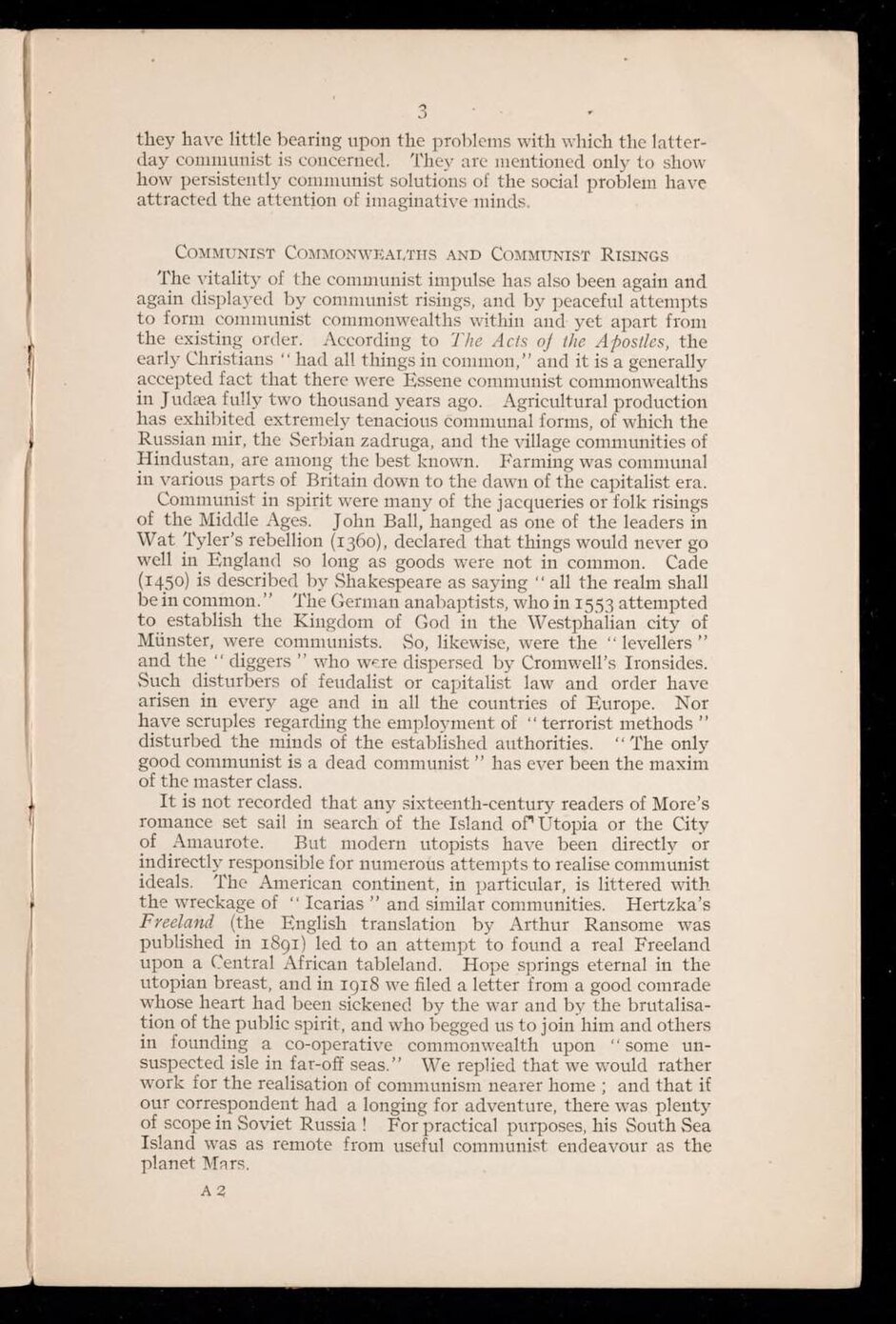3
they have little bearing upon the problems with which the latter-day communist is concerned. They arc mentioned only to show how persistently communist solutions of the social problem have attracted the attention of imaginative minds.
Communist Commonwealths and Communist Risings
The vitality of the communist impulse has also been again and again displayed by communist risings, and by peaceful attempts to form communist commonwealths within and yet apart from the existing order. According to The Acts of the Apostles, the early Christians "had all things in common," and it is a generally accepted fact that there were Essene communist commonwealths in Judæa fully two thousand years ago. Agricultural production has exhibited extremely tenacious communal forms, of which the Russian mir, the Serbian zadruga, and the village communities of Hindustan, are among the best known. Farming was communal in various parts of Britain down to the dawn of the capitalist era.
Communist in spirit were many of the jacqueries or folk risings of the Middle Ages. John Ball, hanged as one of the leaders in Wat Tyler's rebellion (1360), declared that things would never go well in England so long as goods were not in common. Cade (1450) is described by Shakespeare as saying "all the realm shall be in common." The German anabaptists, who in 1553 attempted to establish the Kingdom of God in the Westphalian city of Münster, were communists. So, likewise, were the "levellers" and the "diggers" were dispersed by Cromwell's Ironsides. Such disturbers of feudalist or capitalist law and order have arisen in every age and in all the countries of Europe. Nor have scruples regarding the employment of "terrorist methods" disturbed the minds of the established authorities. "The only good communist is a dead communist" has ever been the maxim of the master class.
It is not recorded that any sixteenth-century readers of More's romance set sail in search of the Island of1 Utopia or the City of Amaurote. But modern utopists have been directly or indirectly responsible for numerous attempts to realise communist ideals. The American continent, in particular, is littered with the wreckage of "Icarias" and similar communities. Hertzka's Freeland, (the English translation by Arthur Ransome was published in 1891) led to an attempt to found a real Freeland upon a Central African tableland. Hope springs eternal in the utopian breast, and in 1918 we filed a letter from a good comrade whose heart had been sickened by the war and by the brutalisation of the public spirit, and who begged us to join him and others in founding a co-operative commonwealth upon "some unsuspected isle in far-off seas." We replied that we would rather work for the realisation of communism nearer home; and that if our correspondent had a longing for adventure, there was plenty of scope in Soviet Russia! For practical purposes, his South Sea Island was as remote from useful communist endeavour as the planet Mars.
